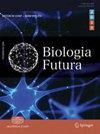A note on centrifugation for improving freshwater invertebrate sample conservation
Q3 Biochemistry, Genetics and Molecular Biology
引用次数: 0
Abstract
Sorting of freshwater invertebrate samples is best done while the animals are still alive. However, sorting in the field generally means less overall sampling can be done in the allotted time. Placing samples under cold conditions has been the traditional way to extend the life of the organisms contained within them. In this work, we evaluated whether the addition of a centrifugation step extends the survival time of organisms post-sampling, thus providing more time for sorting. Three salad spinners were tested for their capacity to extract water from samples. Additional observations were made on the compaction of samples due to excessive centrifugation. We conclude that adding a short centrifugation step of 30 seconds prolongs the life of several freshwater invertebrate taxa, including Hydrachnidia, Nematoda and Ostracoda. Furthermore, when fixation of samples in the field is necessary, centrifugation reduces the amount of fixative to be added to the samples to reach a certain concentration. Fixed samples can also be centrifuged, which may be particularly relevant when sampling abroad as inflam-mable liquids are often prohibited on planes. In our experience, centrifuging fixed samples does not compromise the fixed organisms, or their genetic material.离心法改善淡水无脊椎动物标本保存的注释
淡水无脊椎动物样本的分类最好在动物还活着的时候进行。但是,在现场进行排序通常意味着在分配的时间内可以完成较少的总体采样。将样品置于低温条件下是延长样品中所含生物寿命的传统方法。在这项工作中,我们评估了增加一个离心步骤是否延长了生物取样后的存活时间,从而为分选提供了更多的时间。测试了三个沙拉纺纱机从样品中提取水分的能力。对由于过度离心造成的样品压实进行了额外的观察。我们得出结论,增加30秒的短离心步骤可以延长几种淡水无脊椎动物类群的寿命,包括水螅虫、线虫和介形虫。此外,当需要在现场固定样品时,离心可以减少样品中固定剂的添加量以达到一定的浓度。固定样品也可以离心,这在国外取样时可能特别重要,因为飞机上通常禁止使用易燃液体。根据我们的经验,离心固定样品不会损害固定生物体或其遗传物质。
本文章由计算机程序翻译,如有差异,请以英文原文为准。
求助全文
约1分钟内获得全文
求助全文
来源期刊

Acta Biologica Hungarica
生物-生物学
CiteScore
1.40
自引率
0.00%
发文量
0
审稿时长
3 months
期刊介绍:
Acta Biologica Hungarica provides a forum for original research works in the field of experimental biology. It covers cytology, functional morphology, embriology, genetics, endocrinology, cellular physiology, plant physiology, neurobiology, ethology and environmental biology with emphasis on toxicology. Publishes book reviews and advertisements.
 求助内容:
求助内容: 应助结果提醒方式:
应助结果提醒方式:


